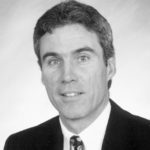From the Editor – RUSS EBBETS
5 Stars and 5 Steps
Twenty years ago I interviewed Peter Coe (TC157). Peter Coe was the father/coach of middle distance legend Sebastian Coe, now head of World Athletics, track’s international governing body. In truth he was a bit of a polarizing figure in British athletics as he directed his son’s career from start to finish. Peter Coe had been a cyclist in his youth with essentially no track & field experience. But as a trained engineer he used his reasoning powers to design his son’s training regimen that produced unparalleled results.
This did not sit well with some of the British AAA and the “Who does this guy think he is?” question got old very quickly for Peter Coe. Once Seb started to have some success the British press chimed in to question his every choice and generally make Peter and Seb’s athletic life and life in general as difficult as possible, as only they can do (think of Meghan Markle and Prince Harry).
I interviewed Peter Coe at a Level 2 School in Minneapolis. He was part of the Level 3 program and I scheduled an evening sit-down, 20-25 questions, nothing controversial, just some facts and possibly a peek behind the curtain that would reveal some of the innovative thought that contributed to Sebastian Coe’s remarkable success.
But like a lot of plans, the interview dis not go according to plan. The pre-interview chit-chat, to establish some rapport, went nowhere. Peter Coe was gruff and unfriendly. Actually, stronger terms would be more accurate. Thoughts darted through my mind. Did he have a “bad day?” Was he mad at the clinic organizers for some reason? Had his presentation been poorly received? Was it me?
Generally, I open an interview with a few softball questions that are easy to answer, maybe elicit some humor or reference an obscure personal detail to show the interviewee that I have researched him and done my homework. I try to design what are called “open-ended” questions that cannot be answered with a yes-no answer and require the subject to elaborate, to talk at length.
My first two questions were duds. There was absolutely no rapport between us. As my mind raced, I finally figured out what was going on. I realized I was the problem. I was “the press,” the sworn enemy of the Coe family and Peter Coe was waiting anxiously for me to turn on him and ask embarrassing questions or attack his coaching ability or doctor his answers to make him look like a fool come publication.
This whole process was unwinding in a matter of minutes. In my mind, I resolved to call it quits; it would be pointless to continue with this. I decided to give it one more question. If I got another yes-no type answer I’d politely thank him for his time, shut off the recorder and go find some ice cream.
“Personal qualities often make the difference between one’s success and failure. I’m asking you this as a parent and as a coach, what were some of the things you emphasized with your children or with your athletes?”
Peter Coe paused a moment, then stated, “First and foremost—discipline…” and the interview began in earnest. Over the next 45 minutes we talked about things great and small in what proved to be a cogent, intelligent discussion of his son’s career, the sport, training issues and life in general.
One thing that Peter Coe mentioned, almost as an aside, was that Seb’s introduction to the sport was through the British AAA’s 5-Star Program. Initially created by the late Tony Ward, the 5-Star program was an introduction to sport, all aspects of track & field that accomplished numerous goals—fundamental movement patterns, fun activities and a charted performance sheet that allowed the novice athlete to set goals for running faster, jumping higher or throwing farther. Which is what the sport is about. Participants were given the idea that training improves performance and certain performances garner awards, specifically the designation of a 5-Star athlete.
Despite the success of the program, times change and “better ideas” are put forth and adopted. And sometimes the better ideas are not so much better as they are simply different, and perhaps not as successful. Tony Ward’s wife, former British Olympian Gwenda Ward, has worked to re-establish a new 5Star-5Step program, a program that is detailed in this issue.
There are similarities and some differences with the new program that strives to reintroduce the sport to novice athletes. With all the clamor of the internet, video games, cell phones, and social media, I think it is worthwhile to take a look at how simple things can be at the very start of an athletic career and to consider an effective start to it all.
Also in this edition is the second part of the Villanova roundtable with participants from the distance medley relay teams that had a 16-year Penn Relays win streak of from 1966 to 1981. This piece dovetails nicely with Jerry Bouma’s upcoming book, Touching Greatness, Forever Together, that details the trials and tribulations of this storied program and the historic competition streak.
Finally, I’d like to give a shout out to our Tokyo Olympians for their inspiring performances. There were some thrilling accomplishments despite the unique distractions that characterize all Olympic Games. Congratulations to all who participated and particular congrats to Ryan Crouser and his shear dominance, Valarie Allman’s breakthrough performance and the 400 hurdlers, male and female, whose collective performances are staggering to me. We all look forward to your future successes.